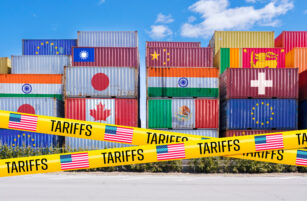Insight Focus
- New criteria released to assess the quality of carbon crediting programmes.
- If crediting programmes meet the criteria they may use a Core Carbon Principles label.
- Categories of carbon credits are now being assessed for fast-track approval.
The Integrity Council for the Voluntary Carbon Market (IC-VCM) last week issued its Core Carbon Principles Assessment Framework, a set of criteria to assess the quality of carbon crediting programmes.
The Assessment Framework will be used to measure whether carbon crediting programmes, and categories of carbon offsets, meet the Core Carbon Principles laid down earlier this year by the IC-VCM.
The Core Carbon Principles guide the quality of offsets by setting threshold standards. The Assessment Framework will apply these same principles to carbon-crediting programs (such as Verra or the Gold Standard) and to categories of carbon credits.
Standards organisations, or crediting programmes as they are referred to by the IC-VCM, are usually non-profit groups who oversee methodologies to account for carbon reductions by individual projects, and issue branded credits that are traded or retired to offset corporate carbon footprints.
Credit categories refers to broad types of offset projects, such as avoided deforestation or distributing efficient cookstoves. Different carbon standards often maintain methodologies covering similar project types.
If crediting programs and credit categories meet the criteria laid out in the Assessment Framework, they are assessed as CCP-eligible and may use a CCP label to denote their compliance with the IC-VCM’s standards.
The Assessment Framework measures crediting programmes against four key criteria:
- Crediting programmes must approve projects that are compatible with a transition to net zero. Projects that lock in emissions will not be eligible for CCP status.
- Emission reductions approved by programmes must be permanent, and projects must compensate for any emission reversals that happen within 40 years.
- Projects that reduce or remove emissions must be additional, that is, they must show that the reductions would not have happened without the revenue earned from the sale of carbon credits.
- Reductions or removals must be robustly quantified, and projects should measure their impact conservatively to minimise the risk of overestimation.
The IC-VCM has begun the process of assessing which categories of carbon credits should be fast-tracked for approval under the Assessment Framework, and which categories will require more in-depth assessment.
The first lists of CCP-eligible programmes and project categories are likely to be announced before the end of the year, according to the IC-VCM secretariat, and it has invited crediting programmes to apply for certification.
The Voluntary Carbon Markets Integrity (VCMI) initiative, a separate organisation focuses on raising the environmental standard of corporate offsetting claims, has welcomed the new Assessment Framework and highlighted the partnership that both organisations are pursuing to boost credibility and confidence in the voluntary carbon market.
The VCMI recently published its Claims Code of Practice, a guide to how companies should report on their emissions footprints and what contribution to addressing climate change they should claim when retiring carbon credits.
The voluntary carbon market has endured a difficult year after media reports cast doubt on the integrity of some categories of credits, questioning the underlying emission reductions that they represent and suggesting that reductions were being overstated.
However, with the backing of the new IC-VCM and VCMI codes of practice and guidances, market stakeholders are hoping that corporates that are not covered by national or regional mandatory carbon markets will continue to contribute voluntarily to global action on climate.
Further developments within the United Nations climate talks this year are bringing closer the prospect of a UN-regulated carbon market that would overlap with the existing voluntary market. Corporate buyers will then be able to purchase carbon credits from UN-approved projects that will be covered by international carbon accounting rules and oversight.














